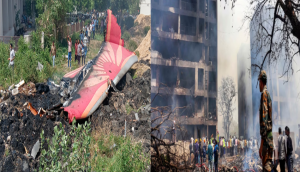
As the specter of all-out war in Ukraine looms large, a confrontation between Russia and the West over Ukraine will undoubtedly have ripple effects on the countries of the Middle East, which must take hard decisions and choose sides.
The prospect of a Russian invasion of Ukraine would put them in the difficult position of choosing between doing business with the West or with Moscow.
A possible war in Ukraine will certainly affect some areas that are of great importance for the Middle East region: energy, agriculture, the question of refugees, and state relations with the West and Russia.
As Russian natural gas accounts for about 40% of the EU gas market, it would be very difficult to fully replace it in case of Russian cuts. Surely, the US would require Qatar and Saudi Arabia to do their utmost to cover the shortfall, but this is easier said than done.
It is worth recalling, that Qatar has recently been designated by the US as a major non-NATO ally, and that on January 31, US President Joe Biden had discussed this issue in Washington with the Emir of Qatar Tamim bin Hamad Al Thani.
Currently, Qatar is the largest global supplier of liquefied natural gas (LNG), alongside Australia, but its production is close to maximum capacity and is tied up in long-term contracts to India and South Korea. So, it cannot supply all the quantities needed.
Furthermore, Qatar wants to see an end to a European Commission antitrust investigation launched four years ago into the way Qatar was selling its long-term contracts to European customers.
There is no question that Saudi Arabia will try to help and is already under strong US pressure to increase its oil production in order to drive down oil prices which have skyrocketed.
Riyadh at the same time must be very careful so as not to harm its relations with Moscow, as Saudi Arabia's dominance of OPEC is due to its partnership with Russia.
Many analysts are convinced that in the event of a Russian invasion of Ukraine, oil prices will exceed one hundred dollars per barrel, triggering a jump in global gas prices, and rises in a huge range of products where energy is a significant production cost. This will affect people all over the world.
Ukraine is one of the world's top wheat exporters and the country was known as the breadbasket of Europe. So, a possible disruption in its wheat supplies will heavily affect several Middle Eastern countries, like Egypt which imports about 80 per cent of the wheat it needs from Ukraine, Libya and Lebanon which import about 40 per cent, and Yemen about 20 per cent.
Lebanon and Yemen are already very close to famine, but if war breaks out, all countries in the Middle East are expected to be affected by the inevitable rise in prices. Sharp price increases invariably spark demonstrations in the Middle East, sometimes quite violent, causing political instability.
If the crisis in Ukraine escalates further, a new refugee crisis will be created, and desperately needed humanitarian aid may have to be diverted for example from Yemen to refugees in Europe. The crisis will become even worse due to the skyrocketing prices in energy and agricultural products and there will not be funds available for reconstruction and development.
Now let's see some of the possible political implications the crisis in Ukraine may have on specific Middle East countries.
A country that is most likely to be affected is Libya, where Russia and the West support different warring factions. The West generally supports the UN's internationally recognized government in Tripoli, while Russia is on the side of eastern-based General Khalifa Haftar in Tobruk.
Last December the scheduled national elections were called off and now there is a risk that the Russian-backed Khalifa Haftar faction could again form a breakaway government at war with the government in Tripoli, leading to a new round of fighting in the war-torn country.
Due to the situation in Ukraine, it is now highly unlikely that the West and Russia will come together to stabilize the situation in Libya.
Turkey also finds itself in the position of having to choose between the wishes of Moscow or Washington. The US Administration wants Ankara to continue its military supplies, particularly drones, to the government in Kyiv, while Kremlin spokesman has stressed that Turkey's ongoing arms sales to Ukraine threatened to destabilize the region.
Turkey is unlikely to fully align itself with the West against Russia, given its complicated relationship with Moscow, involving cooperation in some areas and competitive, even adversarial, relations in others.
In the economic field, it relies on Russian natural gas for its industry and on the millions of Russian tourists visiting Turkey who bring much-needed hard currency. In the geostrategic field, they support opposite sides in the war in Syria and Libya.
Other Middle Eastern states will find themselves in the unpleasant position of picking a side. The United Arab Emirates, for example, does not want to alienate Moscow by aligning with the West, but it will be forced in the end to comply with Washington's wishes.
During the past few years, the relations of several countries in the Middle East with Moscow have improved dramatically, after a perceived decrease in US interest in the region, but now the crisis in Ukraine has changed almost everything, and they cannot ignore Washington's wishes without paying a price.
(ANI)
Also Read: Ukrainian forces attack separatist dominated positions in Donbas region







![BJP's Kapil Mishra recreates Shankar Mahadevan’s ‘Breathless’ song to highlight Delhi pollution [WATCH] BJP's Kapil Mishra recreates Shankar Mahadevan’s ‘Breathless’ song to highlight Delhi pollution [WATCH]](https://images.catchnews.com/upload/2022/11/03/kapil-mishra_240884_300x172.png)

![Anupam Kher shares pictures of his toned body on 67th birthday [MUST SEE] Anupam Kher shares pictures of his toned body on 67th birthday [MUST SEE]](https://images.catchnews.com/upload/2022/03/07/Anupam_kher_231145_300x172.jpg)






